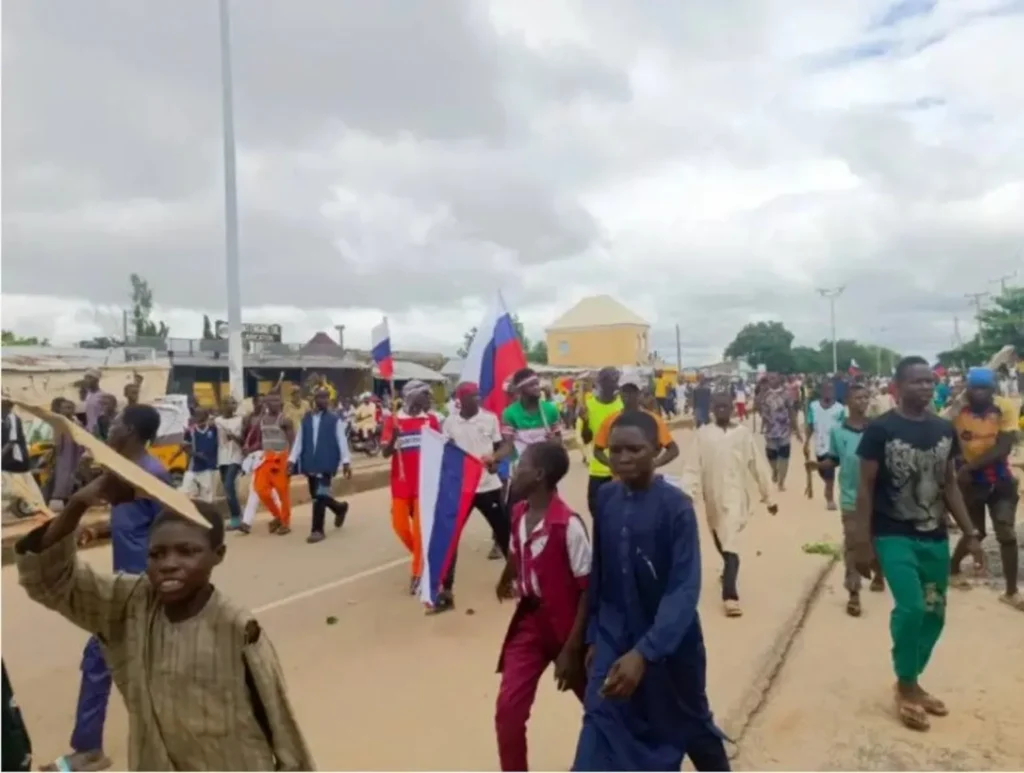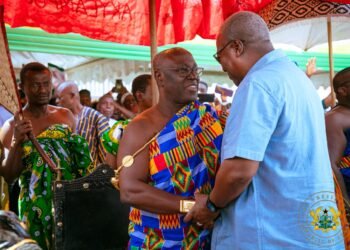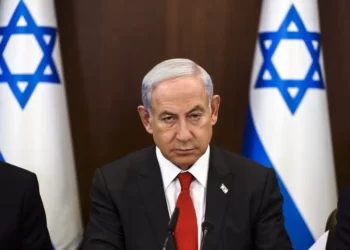At least 10 Nigerian protesters now face the potential of a death sentence after being charged with treason in connection with demonstrations against the nation’s worst economic crisis in decades.
The protesters, who appeared in an Abuja court, were accused of attempting to destabilize Nigeria and intimidate President Bola Tinubu. All have pleaded not guilty and will remain in custody until a bail hearing scheduled for September 11.
Among those still at large is a British citizen, identified by Nigerian authorities as Andrew Wynne.
Nigerian police have accused Wynne of collaborating with the protesters as a foreign mercenary and of establishing sleeper cells designed to overthrow the government and create widespread chaos.
However, no concrete evidence has been presented to substantiate these claims. The British High Commission has yet to comment on the situation.
Nigeria’s police spokesman Muyiwa Adejobi has made sensational allegations, accusing Wynne of working with the protesters.
“Andrew Wynne has been identified as a foreign mercenary building a network of sleeper cells to topple the government and plunge the nation into chaos,” Adejobi said. However, no further details were offered to support this serious charge.

Amnesty Condemns Charges as Blatant Abuse
Amnesty International reports that security forces killed at least 22 protesters during the demonstrations, a claim that authorities have consistently denied.
The human rights organization has expressed alarm over the current government’s response to dissent, describing the treason charges as a severe misuse of the criminal justice system.
Amnesty’s Nigeria country director, Isa Sanusi, called for the charges to be dropped immediately, stating, “These are blatantly trumped-up charges that must be immediately withdrawn.”
President Tinubu, who came to power last year on promises of economic reform and progress, has seen his administration mired in controversy as the country grapples with surging inflation and a rapidly devaluing naira.
His policies, aimed at economic revival, have led to significant public discontent, with food inflation soaring to 40% and fuel prices tripling. These hardships have spurred the protest movement, tagged #EndbadGovernanceinNigeria, which has gained traction both on the streets and online.
Last month, police in the capital fired tear gas to disperse demonstrators. In Kano, protesters attempted to set bonfires near the governor’s office, prompting police to respond with similar force.
Authorities also took preemptive measures to block roads leading to Eagle Square in Abuja, a planned protest site, and deployed security personnel to strategic locations in Lagos, including the infamous Lekki toll gate, the scene of the bloody 2020 protests against police brutality.
Despite the heavy-handed response from security forces, the protests have persisted, particularly in northern regions such as Kaduna, Katsina, and Kano, as well as in the central Plateau state.
A notable aspect of these protests has been the presence of Russian flags among the demonstrators, a symbol that has raised eyebrows given Northern Nigeria’s close cultural and socioeconomic ties with the Sahel region, where recent coups have shifted allegiances away from Western countries and towards Russia.
The sight of Russian flags in Nigerian protests has drawn strong reactions from government officials. When questioned about the presence of the flags, police spokesman Olumuyiwa Adejobi disclosed that “more than 90” individuals were arrested in possession of the Russian flags.
This development prompted an unprecedented joint briefing by security chiefs, who alleged that unnamed foreign sponsors were behind the protests, although they did not provide any evidence to support these claims.
“We are not going to allow any group or individuals to subvert the government,” said Nigeria’s police chief, Kayode Egbetokun, during the briefing. “We will defend our democracy.”
Egbetokun further hinted at a broader conspiracy, suggesting that some of the protest sponsors might be operating from outside the country. He emphasized the need to arrest those carrying foreign flags as a means to trace the supposed sponsors.
READ ALSO: Rema Donates N105 Million to Christ Embassy Church in Benin




















